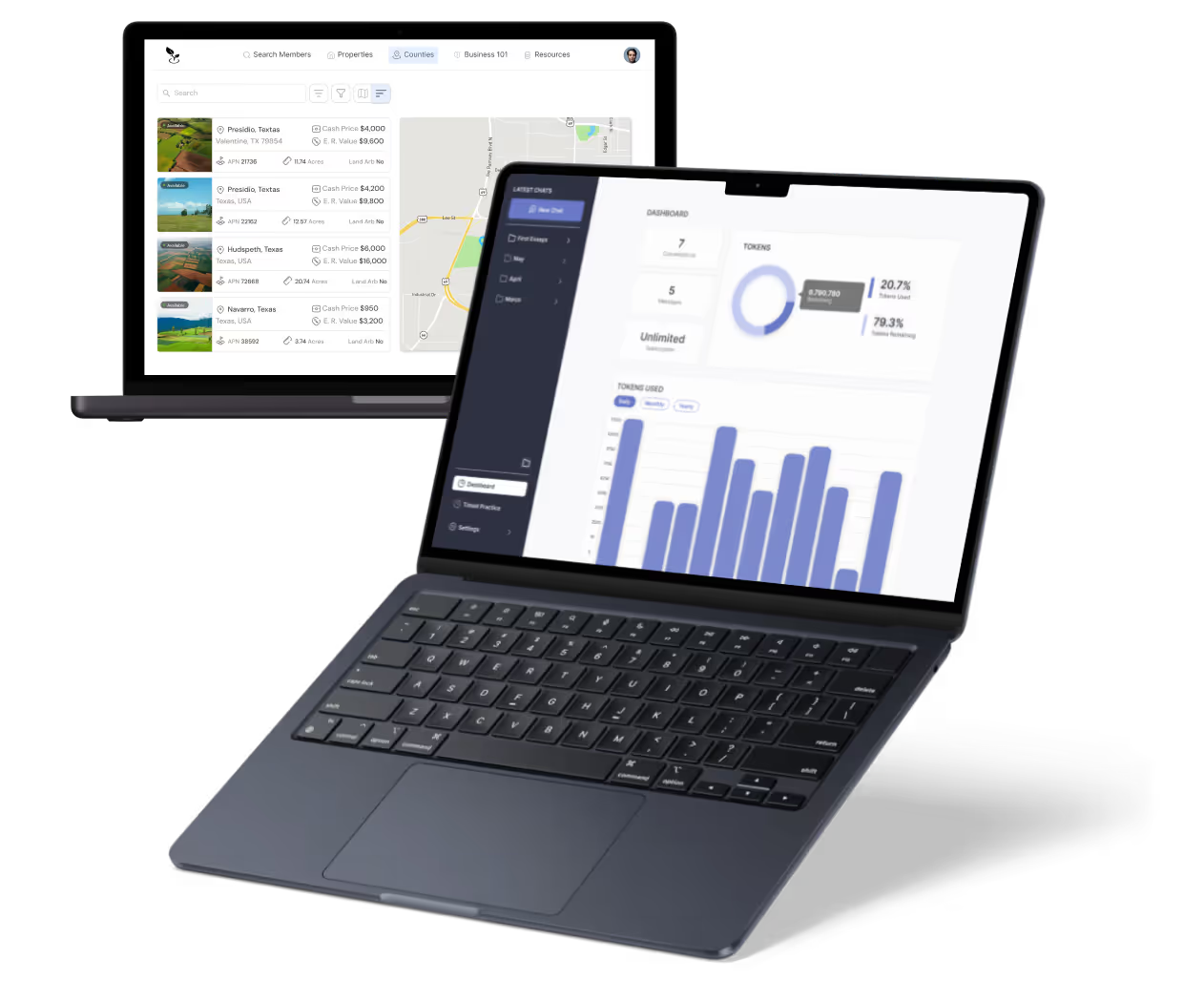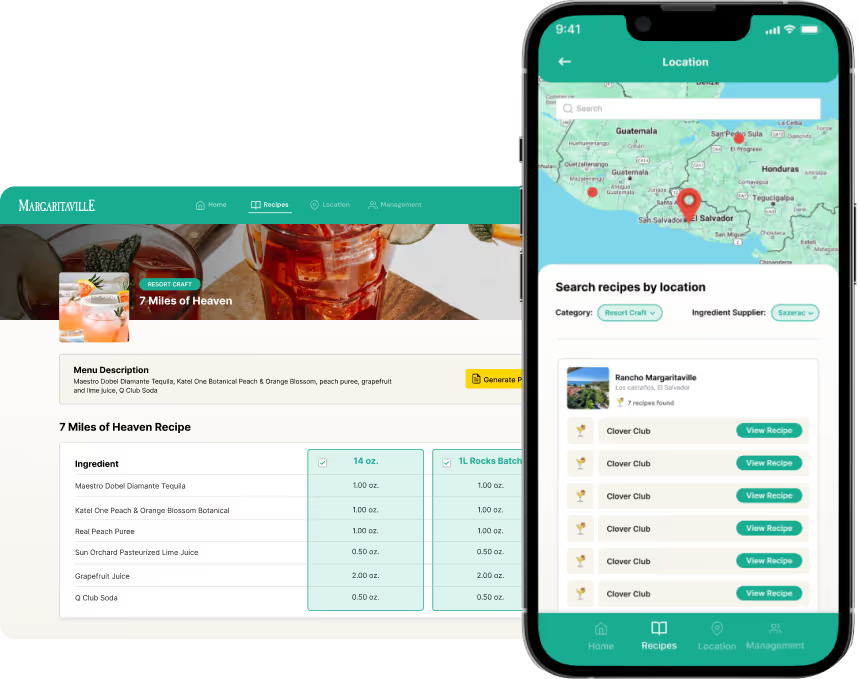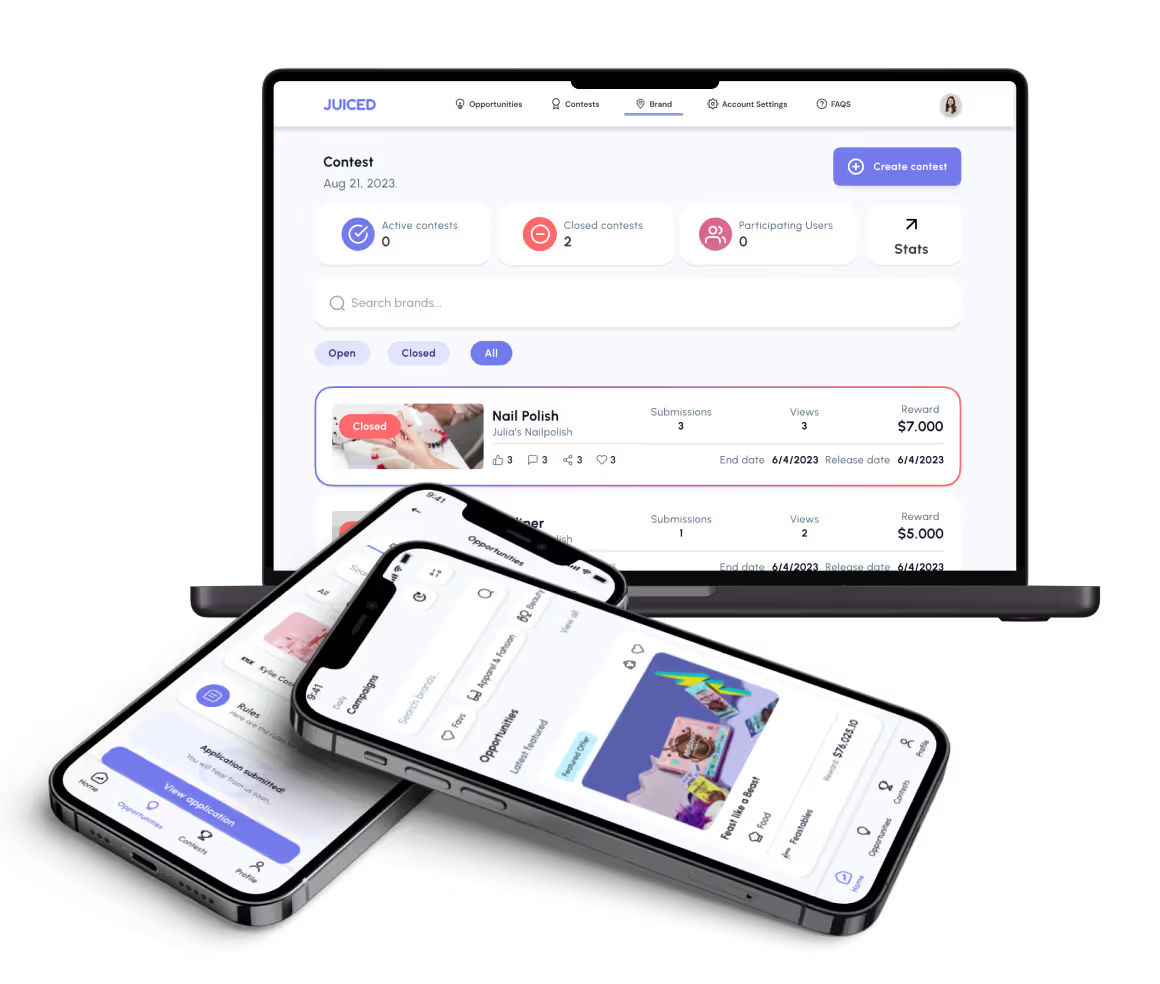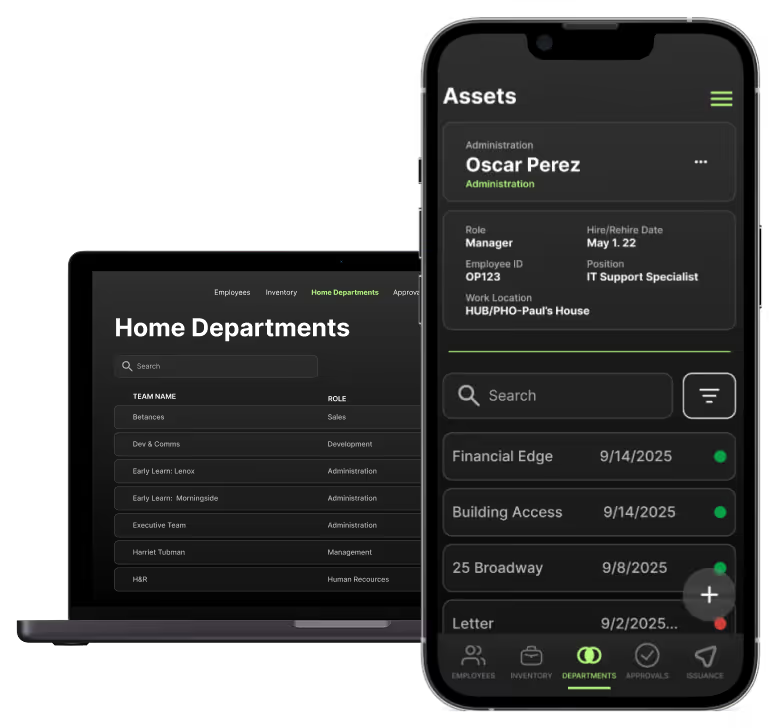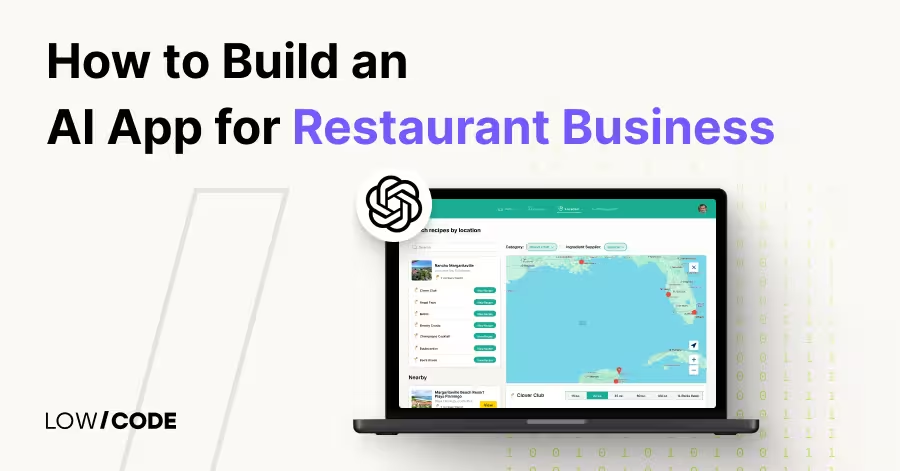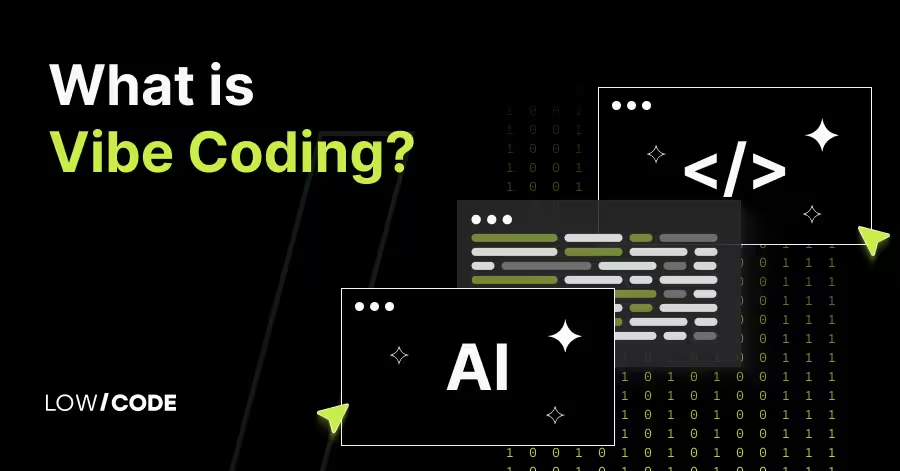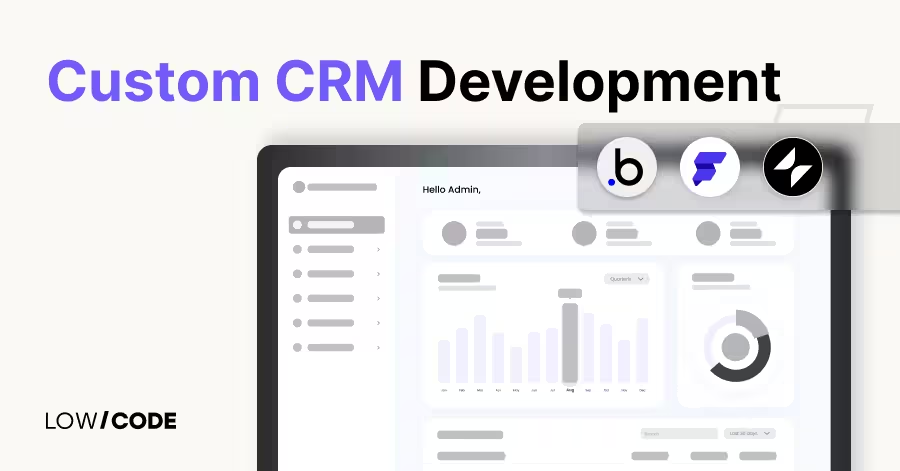How to Build an AI Customer Service App | 24/7 Support
18 min
read
Build an AI customer service app without code to deliver 24/7 support, answer FAQs, and handle chats or calls—boosting response speed and customer satisfaction
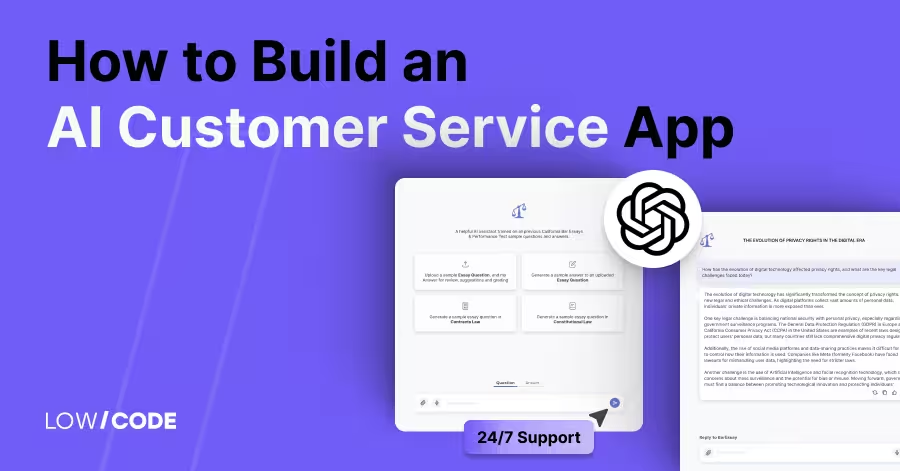
Why Businesses Need AI-Powered Customer Service Apps
Customers now expect quick, accurate help the moment they reach out. Whether they are asking about an order, requesting technical support, or seeking product details, delays can quickly lead to frustration. Meeting this demand is challenging, especially for small businesses with limited budgets and small support teams.
- Faster responses – AI-powered apps can instantly answer common questions, guide customers through troubleshooting steps, or process simple requests without human intervention.
- Lower costs – Automating routine queries reduces the need for large support teams, saving money while maintaining service quality.
- 24/7 availability – Customers can get help anytime, even during weekends or holidays, without waiting for office hours.
- No-code advantage – Tools like Bubble, Glide, and FlutterFlow allow you to build and customize AI customer service apps without hiring developers or writing code.
With the right setup, an AI-powered app can act as your first line of support, handling a large portion of customer interactions while your human team focuses on complex or high-value cases.
This combination improves satisfaction, reduces costs, and scales effortlessly as your business grows.
What an AI Customer Service App Can Do
An AI customer service app goes far beyond answering basic questions. When built well, it becomes a full-service support system that can manage customer interactions across channels, automate transactions, and ensure smooth handovers to human agents when needed.
- Answer FAQs instantly using trained AI – The app can be trained on your product manuals, policy documents, and past support tickets. This allows it to give precise, consistent answers to common questions in seconds.
- Handle live chat, voice calls, and emails automatically – AI can manage multiple conversations at once, whether through a website chat widget, a phone line with voice recognition, or an integrated email inbox.
- Process orders, returns, and refunds without human input – By connecting the app to your payment and inventory systems, customers can place orders, request returns, or receive refunds directly through the AI interface.
- Escalate complex issues with full conversation history – When AI detects a query it can’t resolve, it passes it to a human agent along with the chat transcript, saving time and avoiding repeated explanations.
- Support multiple languages for global reach – AI can translate and respond in different languages, allowing your business to serve customers from anywhere in the world with ease.
Read more | How to Build an AI app for the Restaurant Business
Real Problems an AI Customer Service App Can Solve
Many businesses face recurring customer service challenges that drain time and resources. An AI-powered customer service app can directly address these issues and keep support running smoothly.
- “Our team spends hours answering the same basic questions” – An AI chatbot trained on your FAQs, policies, and product details can instantly respond to common queries, freeing human agents to handle more complex requests.
- “We miss messages outside business hours” – With AI providing 24/7 coverage, customers always receive a timely response, even on weekends or holidays, improving satisfaction and trust.
- “We can’t keep up with high support volume” – AI can manage a large number of first-tier queries at once, filtering and resolving straightforward issues before they ever reach your human team.
- “Our support data is scattered” – By integrating with your CRM and other tools, AI centralizes all customer interactions, making it easier to track issues, review history, and improve service quality.
By automating routine work, the app not only speeds up responses but also ensures consistency, better record-keeping, and a smoother customer experience — all while reducing operational strain on your team.
Read more | How to Build AI Ecommerce platform
Must-Have Features for an AI Customer Service App
To truly deliver value, an AI customer service app needs the right mix of features that balance automation, accuracy, and human backup when necessary.
- Chat + voice support in one interface – Customers should be able to reach you via text or voice without switching platforms, giving them flexibility and comfort.
- AI trained on your company’s docs, FAQs, and tone – The AI should understand your policies, product details, and preferred communication style to ensure consistent, on-brand replies.
- Multi-channel integration – Connect the app to your website, WhatsApp, email, and social media so customers get a unified experience, no matter where they start the conversation.
- Automated ticket creation – When a query needs human attention, the app should create a ticket in tools like Zendesk, Freshdesk, or HubSpot, including the full conversation history.
- Escalation workflows for complex issues – AI must know when to hand over a case to a live agent, ensuring smooth transitions without customers repeating themselves.
- Analytics on queries and performance – Detailed reports help identify frequent issues, measure response times, and improve both AI training and product/service quality.
These features ensure your AI app becomes a reliable, efficient extension of your support team.
Read more | How to Build AI-driven App for Event Planning Business
Step-by-Step: How to Build Your AI Customer Service App
1. Identify Support Needs
Start by listing the top 20 questions, requests, or tasks your customer service team handles most often. This helps define the scope of your AI app and ensures it solves the right problems.
Decide early if you will need text-based chat, voice support, or both, as this affects tool selection and design. Be specific about the use cases, from answering FAQs to processing returns, so your AI can be trained effectively.
A clear understanding of needs ensures you build a system that adds value from day one.
Read more | How to build AI-driven Accountant App
2. Plan Your User Flows
Design the paths customers will follow when interacting with your AI app. Map out how they initiate contact, receive answers, and what happens if the AI cannot resolve their query. Clearly define escalation rules for passing cases to human agents.
Include details like data capture points, confirmation messages, and follow-up steps. Planning user flows upfront avoids confusion, ensures a smoother experience, and helps you spot gaps that could cause frustration.
This also sets the foundation for automation, so repetitive interactions are handled without extra effort.
Read more | How to Build an AI Nutritionist App
3. Train Your AI
Upload all relevant company knowledge, such as policies, product guides, and FAQs, into your AI’s database. This allows the AI to answer with accuracy and consistency. Define your preferred tone, level of detail, and formatting for responses so they match your brand voice.
Use real customer service transcripts to improve AI understanding of common phrasing and context. The more high-quality information you provide, the better your AI will perform in delivering helpful, on-brand responses to customer queries across different scenarios.
Read more | AI fitness app development guide
4. Integrate Channels
Customers use different platforms to reach out, so connect your website chat, WhatsApp, email, and social media to your AI app. This ensures all messages are routed into a single system for tracking and response. Integration also makes analytics easier, helping you monitor query trends and resolution times across channels.
Automations can tag, sort, and prioritize messages based on keywords or urgency. A well-connected multi-channel system provides customers with consistent service, no matter where they start the conversation, and keeps your team organized.
Read more | AI business process automation guide
5. Work with Experts Instead of Going DIY
We have seen many businesses waste months on trial and error builds that do not integrate well or handle data securely. Partnering with experts like LowCode Agency means your app is designed, integrated, and launched the right way from the start.
We handle secure data flows, multi-channel connections, and AI integrations so your system works reliably under real-world conditions. Our experience in building AI-powered customer service apps ensures faster delivery, fewer mistakes, and a clear ROI.
Instead of struggling with technical hurdles, you can focus on delivering better customer experiences while we handle the complex setup.
Read more | Build AI-Powered Mobile Apps
6. Test and Improve
Launch your app in a controlled testing phase with a small group of users. Track metrics like AI accuracy, escalation rates, and average response times. Identify where the AI needs retraining or where user flows can be simplified. Update your prompts, improve the knowledge base, and adjust escalation triggers based on feedback.
Ongoing refinement ensures your AI customer service app stays accurate, efficient, and aligned with evolving customer expectations. Continuous improvement turns your app from a basic automation tool into a long-term asset for your business.
Read more | Best no-code AI app builders
No-code Platforms to Build Your AI Customer Service App
1. Bubble
Bubble is ideal if you want a fully custom AI customer service app with built-in dashboards, ticket management, and role-based access for agents. You can design complex workflows to automate chat responses, assign tickets, and track resolutions in real time.
Bubble supports integrations with GPT models for intelligent responses and can connect to CRMs, payment gateways, and analytics tools. This makes it perfect for businesses that need a central hub where customer interactions, history, and performance metrics are stored in one place.
Its flexibility allows you to create multi-channel support, escalate cases automatically, and maintain a professional, branded interface for all customer touchpoints.
2. Glide
Glide is also perfect for customer service apps that connect directly to Google Sheets for easy data management. You can set up a simple helpdesk where customer queries are logged, answered via GPT integration, and updated in real time. Using Make or Zapier, Glide can pull in data from email, WhatsApp, or social media channels to keep all requests in one place.
It’s best suited for small to mid-sized teams that want a quick, mobile-friendly way to offer AI-driven chat support, manage FAQs, and automate ticket creation — all without handling complex backend systems or heavy maintenance work.
Read more | 9 Best Generative AI Development Companies
3. FlutterFlow
FlutterFlow works best for mobile-first AI customer service solutions, especially for teams that need secure, on-the-go support access. It integrates seamlessly with Firebase for secure data handling, enabling encrypted storage of chat histories, customer details, and ticket statuses.
You can design a native mobile app with live chat, push notifications for new tickets, and AI-assisted responses. FlutterFlow also supports automation through n8n or Make, letting you route messages, escalate urgent cases, or send status updates to customers instantly.
This makes it ideal for field service teams or customer-facing staff who rely on real-time updates and a fast, intuitive mobile experience.
4. Make / Zapier / n8n
Automation tools like Make, Zapier, and n8n act as the bridge between your AI customer service app and your communication channels. You can route messages from email, website chat, or WhatsApp to the right AI workflow, create tickets in platforms like Zendesk or HubSpot, and send automatic status notifications to customers.
They also allow you to sync data with CRMs, update customer profiles after each interaction, and trigger follow-up messages for unresolved cases.
By handling repetitive tasks behind the scenes, these automation platforms ensure your AI-powered support system works smoothly, saves time, and delivers consistent, high-quality responses across all channels.
Use Cases by Business Type
AI customer service apps can be tailored to fit the needs of different industries, delivering faster responses and improving customer satisfaction while reducing manual workload.
- E-commerce – AI can instantly handle order tracking requests, process return or exchange requests, and suggest products based on browsing or purchase history. It can also provide quick answers about shipping policies, stock availability, or payment methods, ensuring customers get accurate information without waiting for an agent.
- SaaS – For software businesses, AI can guide new users through onboarding, explain product features, and troubleshoot common issues. It can integrate with knowledge bases to provide step-by-step solutions, freeing up human support for more complex technical problems.
- Agencies – Marketing, design, or consulting agencies can use AI apps to manage client requests, deliver automated performance reports, and provide updates on ongoing projects. Clients can submit service requests and receive instant confirmations.
- Hospitality – Hotels, resorts, and rental services can use AI to send booking confirmations, provide check-in instructions, and answer frequently asked questions about amenities, local attractions, or policies.
By adapting the workflows and integrations, AI customer service apps can become a key operational tool for any business type, enhancing both efficiency and customer experience.
Read more | How to hire AI app developers
Common Mistakes to Avoid
While AI customer service apps can greatly improve support efficiency, certain mistakes can limit their effectiveness or even harm the customer experience.
- Relying only on AI without human escalation – AI can handle most first-tier queries, but complex, sensitive, or emotional cases need a human touch. Without a clear escalation process, customers may feel frustrated or ignored.
- Not keeping the AI’s knowledge base updated – An outdated AI will give wrong or incomplete answers. Regularly update FAQs, policy documents, and product information so responses remain accurate and relevant.
- Ignoring security for customer data – Support interactions often include sensitive details such as personal information or payment data. Always use encrypted storage, secure authentication, and compliance measures to protect customer privacy.
- Overcomplicating workflows with too many tools – Using multiple platforms without proper integration can create confusion and slow response times. Keep your tech stack lean and ensure tools connect smoothly through automation platforms like Make, Zapier, or n8n.
By avoiding these mistakes, your AI customer service app will not only perform better but also build trust, provide consistent support, and deliver a customer experience that truly stands out.
Read more | How to build an AI project manager app using no-code
Partner with LowCode Agency to Build Your AI Customer Service App
At LowCode Agency, we specialize in building intelligent, user-friendly customer service applications using no-code tools and AI. Whether you need an AI chatbot for instant FAQs, a multi-channel support hub, or a scalable ticket management system, we turn your vision into a fully functional product — faster and smarter.
We specialize in:
- Glide (largest and leading agency)
- Bubble (recognized silver-tier agency)
- FlutterFlow for scalable native mobile apps
- Webflow for pixel-perfect websites
- Custom AI-driven automations (using Make, Zapier, and n8n)
With a proven record of delivering customer service solutions across industries, our expert project managers, no-code developers, and designers create tools that handle live chat, voice support, automated ticketing, order processing, and escalation workflows.
We focus on speed, quality, and long-term scalability — helping businesses deliver exceptional 24/7 customer service while keeping operational costs low.
Created on
August 13, 2025
. Last updated on
January 16, 2026
.

FAQs
Can an AI app replace a customer service team?
Which no-code platform is best for customer service apps?
How does AI learn my company policies?
Is it safe to use AI for customer support?
Can I integrate AI chat with my existing CRM?
How can AI improve response times in customer service apps?







